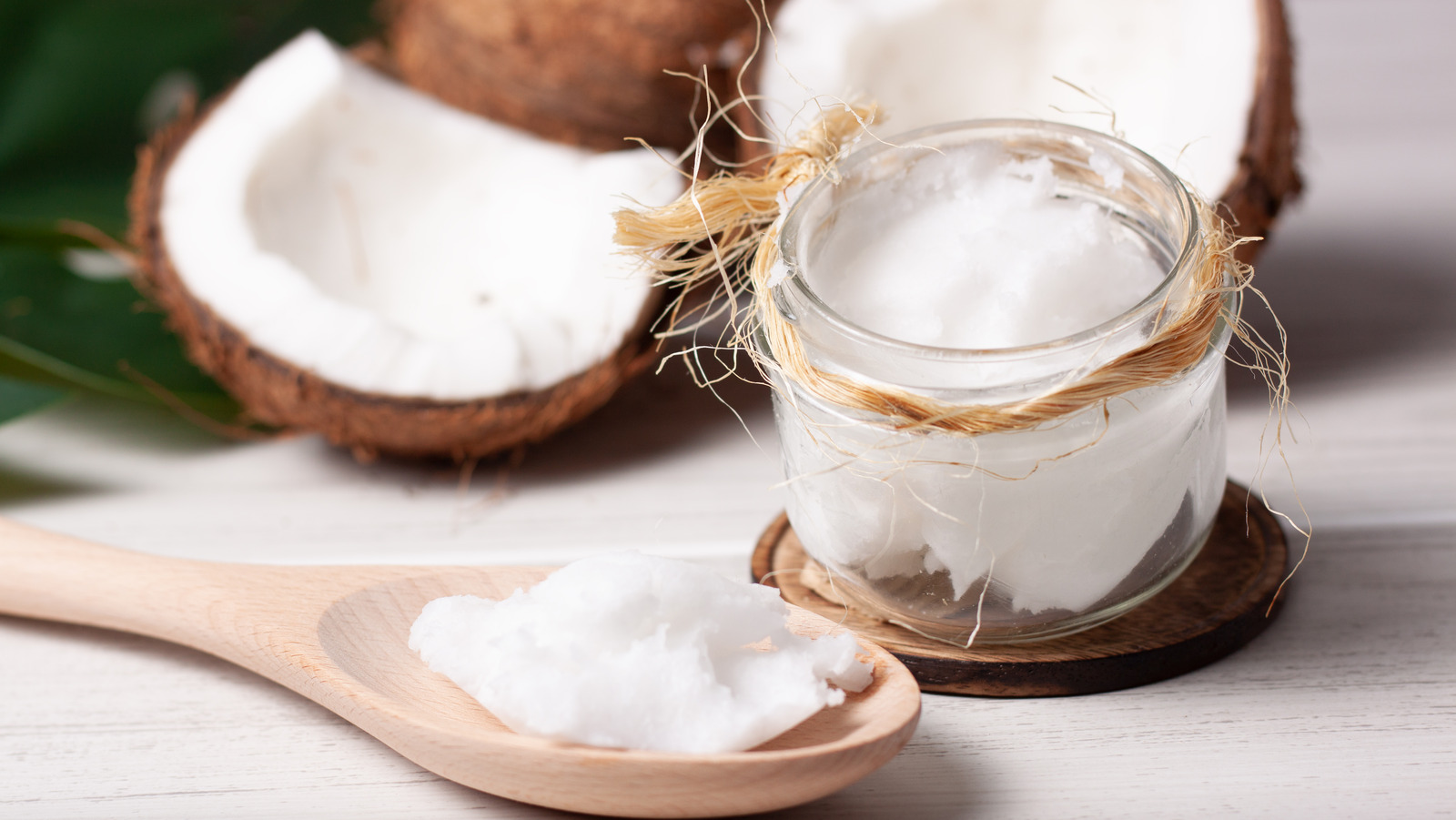Aside from the various processes responsible for refined and unrefined coconut oils, the two have several distinguishing characteristics. For starters, in terms of taste and smell, virgin or unrefined coconut oil is aromatic with a definite coconut flavor. Meanwhile, refined coconut oil would be difficult to identify by taste or smell alone. Consequently, each has its own role when it comes to cooking.
Due to its processed nature, refined coconut oil has a higher smoke point (around 400 F), according to The Washington Post, which means it can be used for a wider range of dishes. While not recommended as a deep frying option, your piping hot stir fry should work just fine. On the other hand, unrefined coconut oil has a smoke point of around 350 F, making it a suitable option for baking or light sautéing. In particular, the two differ quite a bit in terms of shelf life, and Harvard notes that if properly stored, pure, unrefined coconut oil will long outlast its more processed counterpart.
Although Greatist reports that refined and unrefined coconut oils are essentially nutritionally equivalent, there are some additional considerations that make unrefined coconut oil a healthier option. If you have extra money to shell out, you can be sure that there is nothing but coconut in your raw coconut oil.

